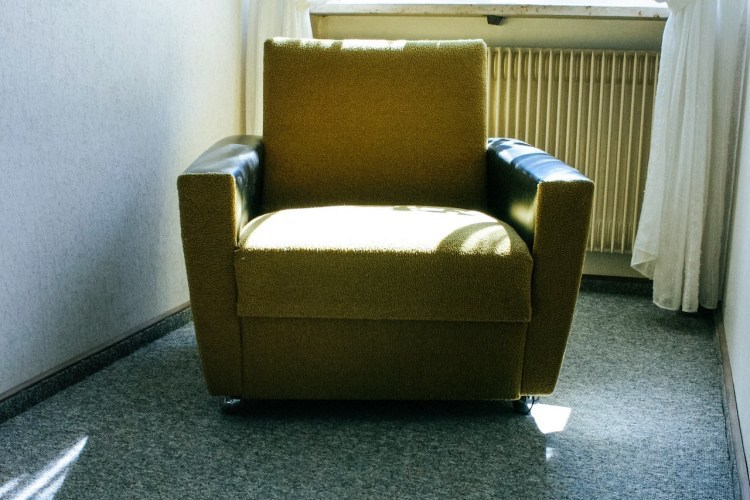
Carpets are a popular flooring choice among homeowners in Broomfield, CO (where we are based) and many other parts of the USA. They are soft, warm, and add an extra layer of comfort to any room in which they are installed. However, some people have concerns about the impact that carpets can have on indoor air quality. In this article, we are going to discuss whether carpets are bad for your home's air quality and what steps you can take to minimize any potential risks they may pose. As experienced local carpet cleaning professionals, we have an in-depth knowledge of this topic and it is our pleasure to be able to share this knowledge with you.
How Carpets Impact Indoor Air Quality
Carpets can potentially impact indoor air quality in a number of ways, as any of your local carpet cleaning companies would be happy to confirm. The first way is mainly considered positive: they can act as a trap for dust, dirt, and other particles that are either already inside your home or that are brought in from outside, mainly on the soles of your shoes. However, if this accumulation of dust and dirt is not dealt with on a regular basis, it can result in a large number of allergens such as dust mites, pet dander, and pollen, being released from the pile of your carpeting every time it is disturbed, i.e. whenever somebody touches it or walks over it.
Secondly, carpets can release volatile organic compounds (VOCs) into the air in your home. VOCs are chemicals that can off-gas from materials like carpet fibers, paints, and furniture upholstery. Some VOCs are known to cause irritation of the eyes, nose, and throat while others can have long-term health effects that are often quite serious.
Finally, carpets can also contribute to higher humidity levels in your home. High humidity levels can result in an overly moist environment, which in turn may promote the growth of mold and mildew on walls and other surfaces. Both mold and mildew can have a negative impact on your health, especially if you should happen to suffer from allergies. However, there is no need to rip out your carpets and replace them with hardwood flooring because there are steps you can take to eradicate these issues, and they are relatively easy to follow.
Steps to Eradicate Carpet-Related Air Quality Issues in Your Home
If you have concerns about the impact of your carpets on the quality of the air in your home, there are a number of steps that you can take to minimize or eradicate any potential risks.
- Choose Low VOC Carpets - When selecting a new carpet to be installed in your home, look for options that are low in VOCs. Many carpet manufacturers now offer low-VOC carpets that are either made from natural materials or have been treated with eco-friendly processes to minimize the VOCs they contain.
- Regular Cleaning - Regular vacuuming will help to keep surface dust and dirt under control and professional carpet cleaning will remove whatever dust, dirt, and allergens manage to accumulate deep inside the pile. We recommend that you vacuum your carpets at least once a week, more frequently if necessary, and that you have them professionally cleaned every 12-18 months. In particularly busy or messy households, it may be necessary to book a local carpet cleaning service annually.
- Controlling Humidity Levels in Your Home - To prevent high humidity levels in your home from causing problems, you should use a dedicated dehumidifier, or an air conditioning system that dehumidifies the air, during the warmer months of the year. You should also ensure that your carpets are properly dried every time they are cleaned, to minimize the chances of mold or mildew taking hold in your home. The best way to ensure that your carpets are properly dried after being cleaned is to hire a team of professionals who use a truck-mounted steam cleaning machine. This will prevent excess water from forming in the first place and ensure a fast drying time.
- Use Floor Mats - Placing floor mats at every entrance to your home can help to prevent dirt and dust from being tracked into your home on the soles of your boots or shoes. This simple measure can significantly reduce the amount of dirt and debris that accumulates in your carpets over time, thereby improving the air quality in your home.
- Consider Alternative Flooring Options - If you have serious concerns about the impact of your carpets on indoor air quality, you may like to consider some alternative flooring options, such as hardwood or tile. These types of flooring are easier to clean and do not trap allergens and dust like carpets do. However, if you do this, you will lose the beneficial aspect of carpeting in your home as well: the fact that it acts very much like a giant air filter by trapping many of the dust particles that are floating in the air circulating all around your home.
In summary, carpets may potentially impact indoor air quality, but not always in a negative way. Furthermore, if you want to continue enjoying the wonderful feel of carpeting underfoot, there are steps you can take to minimize any risks. For professional carpet cleaning and carpet repair in Boulder that you can trust, feel free to contact us at any time.
